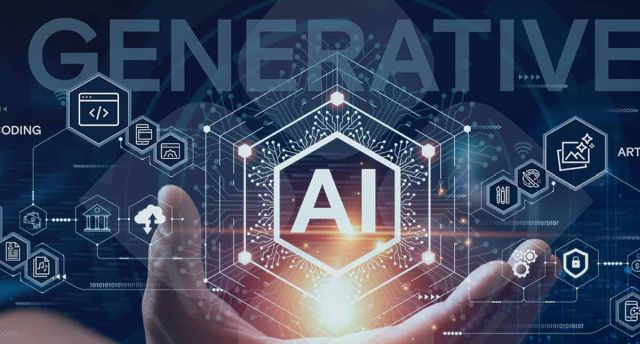
Responsible Gen AI adoption could add $675 bn in economic value for India


Generative artificial intelligence (AI) has become widely popular, but its adoption by businesses comes with a degree of ethical risk. Experts believe that organizations must prioritize the responsible use of generative AI by ensuring it is accurate, safe, honest, empowering, and sustainable. And that’s reflected in a new research report which showed embracing a people-centric approach while adopting generative AI (GenAI) could add an extra $675 billion for India in economic value by 2038.
The report published by consulting major Accenture showed that in India, 31 per cent of working hours will either be automated or augmented by generative AI. It could lead to a 0.6 percentage point increase in GDP growth per year and an additional $675 billion in economic value by the given time frame.
The report combined economic modelling conducted for four of Asia Pacific’s largest economies, including Australia, China, India and Japan, and a CXO survey in these countries and Singapore and found that responsible GenAI adoption could add an extra 4.5 trillion in economic value in APAC over the next 15 years.

“The scaled and responsible deployment of generative AI can not only drive revenue growth but also act as a force of change that can reinvent almost all functions across industries,” said Saurabh Kumar Sahu, Lead for India Business at Accenture.
To unlock its real value, businesses need to have a bold vision for reinvention anchored in a strong data and technology foundation. "This coupled with an intentional approach to skilling is crucial to succeed in the age of generative AI,” Sahu added.
This phenomenon of AI becoming pervasive across the core sectors of the Indian economy is also leading to enhanced perceived risks. Rishi Aurora, Managing Partner at IBM Consulting India & South Asia, said in an article shared with TechCircle, that the ethical implications of AI implementation are no longer peripheral concerns but central considerations for corporate governance. Concerns such as regulations, ethics, data governance, trust, and legality are gaining rapid significance – warranting the board of directors to add it to their agenda.

“Boards must proactively establish clear guidelines and standards, and integrate ethical considerations into strategic decision-making processes. Moreover, fostering a culture of ethical awareness and accountability throughout the organisation is essential for ensuring that responsible AI principles are upheld at every level,” he said.
Muthumari S, Global Head of AI Studio at Brillio, emphasises that strong AI literacy that encompasses training and enablement programmes often leads to greater responsible AI.
Likewise, the Accenture survey shows about 96 per cent of APAC business leaders acknowledge the significant impact of generative AI, and 91 per cent of APAC workers indicate that they are keen to acquire new skills to work with generative AI, but only 4 per cent of business leaders have rolled out generative AI training at scale.

The most impacted industries include Capital markets where generative AI will transform nearly three-quarters of working hours (71 per cent) and software and platforms where two-thirds (66 per cent) of working hours will be automated or augmented. This is followed by banking (64 per cent), insurance (62 per cent) and retail (49 per cent), said the report.
A Bosch survey published in March found that nearly 60 per cent of Indians believe responsible AI use can improve work processes. Additionally, a Salesforce report revealed that 67% of senior IT leaders plan to focus on generative AI in the next two years, but they stress the need for a secure framework due to concerns about security risks and potential biases. Organizations must prioritize ethical and responsible AI deployment. That said, without clear ethical standards, generative AI could lead to unintended harm.
